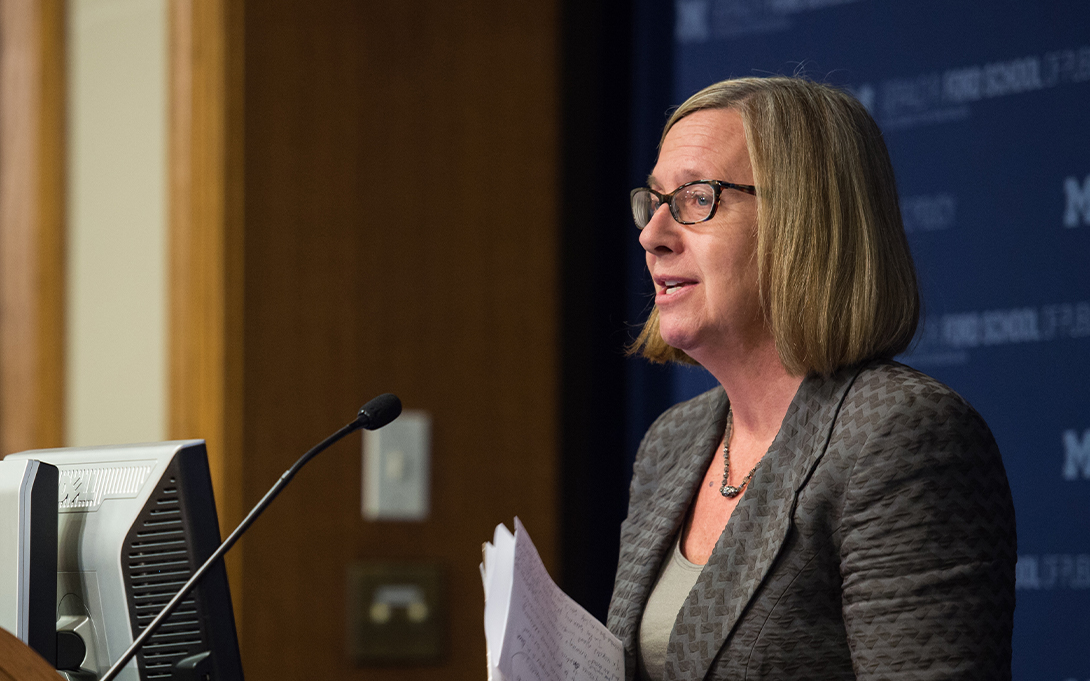
“The novel coronavirus pandemic has set in high relief the entrenched health, social, racial, political, and economic inequities within American society,” opens an article co-authored by Associate Dean Paula Lantz that appears in the Journal of Health Politics, Policy and Law, pre-published on May 28.
Examining statistics that have emerged over the past three months, it goes on, “The incidence of severe morbidity and mortality from the disease caused by the virus appears to be much greater in Black and other racial/ethnic minority populations, within homeless and incarcerated populations, and in lower-income communities in general.” For example, in Michigan, African Americans are 14% of the population but account for 40% of the COVID-19 deaths in the state.
Lantz and co-authors Philip M. Alberti of the Association of American Medical Colleges and Consuelo H. Wilkins of Vanderbilt University Medical Center ask, “When new waves of the current pandemic emerge or another novel pandemic emerges, how can the U.S. be better prepared and also ensure a rapid response that reduces rather than exacerbates social and health inequities?”
In this article, the authors discuss how people in different socioeconomic circumstances do not have the same ability to follow the chorus of CDC advice to wash your hands, stay at home, and self-isolate if you have symptoms of COVID-19. Hand washing is not possible if your water has been turned off. Staying at home is not possible if you are a frontline service worker and dependent upon the income. Isolation is not possible in crowded dense settings. Also the recommendation to wear a face mask in public is problematic for many African American men who perceive covering their face in public more of a threat to their safety than the coronavirus itself.
In addition, the authors observe that the inequities emerging in the COVID-19 pandemic are not simply due to race or socioeconomic status. Rather, decades of marginalization and structural disadvantage mean that communities of color and other marginalized populations are more at risk for exposure to the virus and also have borne the brunt of the economic hardship caused by the pandemic. Changing those circumstances will take major public policy efforts, including creating greater access to stable housing, paid sick leave, employment mobility, high-quality education, food security, reliable access to banking, and affordable health care.
The authors propose two calls to action, based both on high-quality data and community input and expertise. The first seeks to address the social determinants of health by expanding health promoting social and economic resources; the second calls for the rapid response to a health crisis that deploys resources for the health and well-being of all, “not just a privileged few.”
The article concludes, “When the next pandemic hits, or when the next wave of this novel coronavirus crests, we hope this and other calls for action significantly increase our nation’s ability to promote social justice and health equity in both our responses and their outcomes.”
The entire article can be seen here.
Paula Lantz is the associate dean for academic affairs and the James B. Hudak Professor of Health Policy at the Ford School. She also holds an appointment as professor of health management and policy in the School of Public Health. Lantz, a social demographer, studies the role of public policy in improving population health and reducing social disparities in health. Lantz is currently engaged in research regarding the potential for and challenges associated with using social impact bonds to fund public/private partnerships aimed at improving health in low-income populations, including Medicaid beneficiaries. An elected member of the National Academy of Social Insurance and the National Academy of Medicine, Lantz received an MA in sociology from Washington University, St. Louis, and an MS in epidemiology and PhD in sociology from the University of Wisconsin.